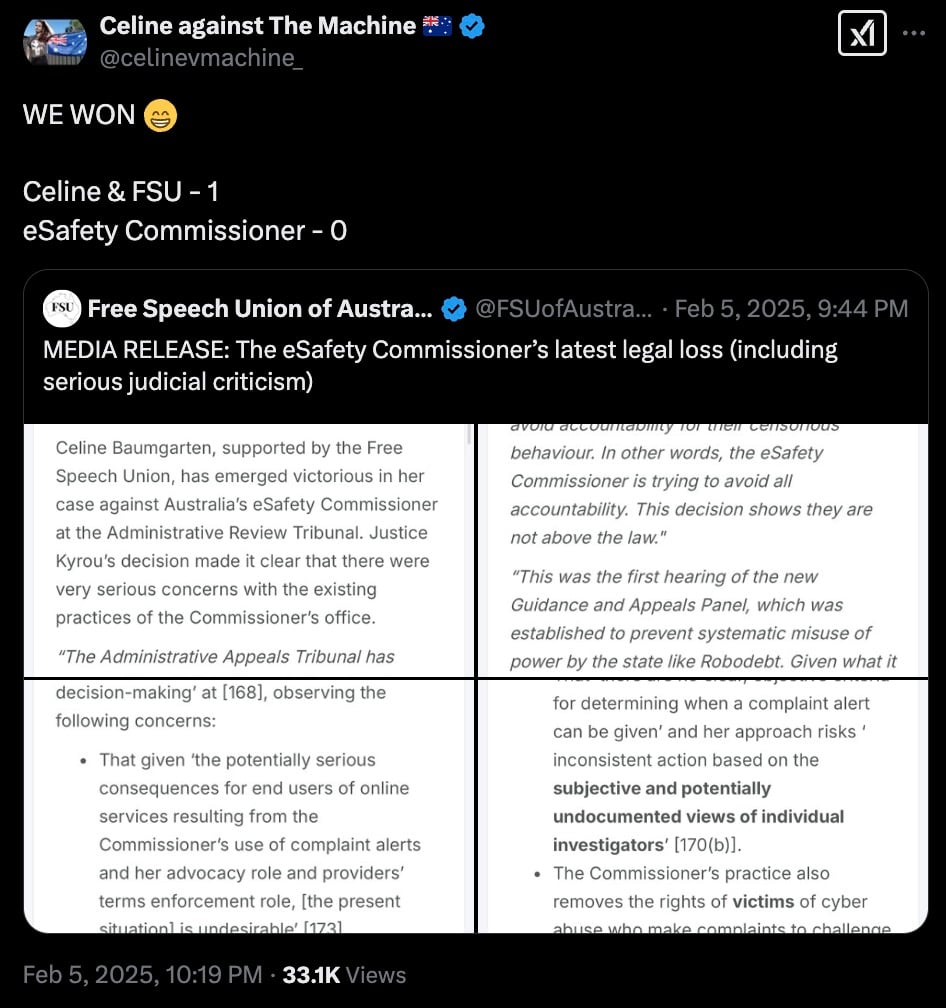An Australian woman whose X post was censored based on what are known as “informal” notices, issued by Australia’s eSafety Commissioner Julie Inman Grant to social platforms, has appealed against the decision and won.
This was more of an uphill battle than getting censorship decisions revoked usually involves: the “informal” nature of the notices means that normally they cannot even be appealed – and eSafety’s main argument was that the appeal should not even be considered.
But the X user, Celine Baumgarten, managed to convince the Administrative Review Tribunal the censorship notice should not be considered “informal” and that her complaint was therefore within the tribunal’s jurisdiction.
Baumgarten’s post from May 2024 detailed a “queer club” in Melbourne that was operating in a primary school, organized for children 8 to 12 years old.
“There is absolutely NO place for any type of LGBTxyz club in a PRIMARY SCHOOL, or any school for that matter,” Baumgarten, herself a bisexual and an activist, wrote at the time, adding, “Children should NOT be learning about sexualities at such a young, impressionable age. This is foul. Leave the kids ALONE.”
Next, in swooped Grant’s office, with what they maintain was no more than a “complaint alert” to X – as opposed to a removal notice – referring to “adult cyber-abuse material” as the reason to have Baumgarten’s post blocked for X users in Australia.
eSafety essentially tried to “sneak in” censorship under the guise of an “informal notice” – aware that an official takedown request was impossible given that they found their own rules were not violated, not in the entirety of their many parts.
X erred on the side of censorship and blocked the post for two months, to then inform Baumgarten this was done “in error.” Interestingly, Instagram, which received the same eSafety notice, ignored it.
And now the tribunal has done much more than vindicate Baumgarten; the judge broke down eSafety’s process to reveal that while asserting that the notice was “informal” and referring to the terms of use X has for itself – the complaint was actually lodged via X’s channels “for use by government authorities to submit valid legal requests for the removal from X of potentially illegal content.”

All this was interpreted by Justice Emilios Kyrou to mean that the censorship notice was clearly official and therefore eligible to be appealed.
Since eSafety prefers what it calls “informal” to “official” takedown notices (several hundred vs. three or four just over the past year), the implication of the ruling could be significant – prompting a review of other such “informal” reports.










